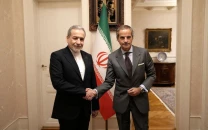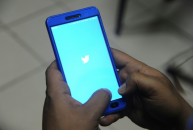Afghans seek $4.1 billion a year from NATO summit
Kabul is looking to the Chicago summit to set the $4.1 billion dollars a year in stone.

Afghanistan, fearing a new civil war or military advances by hardline Islamist insurgents following the withdrawal, sees the cash as an investment in the West's own security against terrorism.
"This is not charity, Afghanistan is and will be on the frontline of the world's fight against terrorism," Deputy Foreign Minister Jawed Ludin told foreign journalists ahead of the summit.
"We Afghans will be making sacrifices for years to come in what is essentially an international war."
After the 9/11 attacks in 2001, the United States led an invasion of Afghanistan to topple the Taliban regime for harbouring al Qaeda leader Osama bin Laden -- and Nato still has some 130,000 troops fighting an insurgency.
But with the long war increasingly unpopular in the West, Nato has set 2014 as the deadline for pulling its combat troops out, while training some 350,000 Afghan security forces to take over the fight.
US President Barack Obama flew to Kabul at the beginning of May to sign a Strategic Partnership Agreement with President Hamid Karzai, covering relations between the two countries until 2024.
But the pact does not specify the funding to be provided for the Afghan army and paramilitary forces -- and Kabul is looking to the Chicago summit to set the $4.1 billion dollars a year in stone.
Describing the figure as "modest", Ludin said it would be far cheaper for contributing countries to have Afghans fighting the war on terror on their behalf than doing it themselves.
The United States, which has nearly 100,000 troops in Afghanistan, spends close to $10 billion a month on the war.
In return for the funding, Afghanistan will commit to preserving gains in respect of democracy and human rights, and will be an ally of the international community in the fight against terrorism, Ludin said.
But it will strongly oppose any conditions being set on the funding.
"As long as terrorism remains a threat to our security and the security of the international community, Afghan people will be making sacrifices on behalf of the world," the deputy foreign minister said.
"Those sacrifices will have to be respected and the world has to really recognise that any contributions will be part of this equal partnership -- an investment rather than an act of charity."
Issues such as corruption, an enormous problem in an unstable country awash with billions of dollars in foreign funds for the past 10 years, should be dealt with by the Afghan state itself, he said.
Ludin pointed out that corruption -- "a dark and tragic aspect of the past 10 years" -- was rife not only within the government but widespread outside it, "including in the contract systems of the international community".
Afghanistan itself will provide $500 million of the $4.1 billion from its own resources, while the United States is expected to contribute some $2 billion and wants the international community to cover the rest.
That money is purely to support the security forces -- development aid will be the subject of a separate conference to be held in Tokyo in July.
Afghanistan gets roughly $15.7 billion of international aid annually, according to a recent World Bank report, but that is expected to drop sharply as the troops pull out, leading to losses of tens of thousands of jobs and potential instability.
Another possible hazard is a plan to reduce the size of the Afghan security forces from 352,000 to 228,000 by around 2017, potentially leaving more than 100,000 trained fighters without jobs.
In Chicago, NATO is sure to talk up the ability of Afghanistan to survive the departure of its troops, both in terms of security and the economy.
But that optimism is not widely shared in Afghanistan, with record numbers of young, educated Afghans trying to get out of a country they fear might collapse once again.
More than 30,000 Afghans applied for asylum in industrialised nations in 2011, the highest level in a decade, according to United Nations figures -- and thousands more simply try to make new lives abroad illegally.


















COMMENTS
Comments are moderated and generally will be posted if they are on-topic and not abusive.
For more information, please see our Comments FAQ